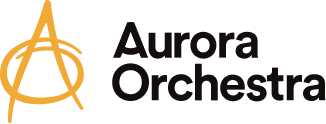Deutsche Grammophon debut announcement
29 May 2020

Aurora is delighted to announce the release of Music of the Spheres, our debut album for Deutsche Grammophon. The album is based on the ancient Greek concept that the movement of the planets produces a celestial harmony of profound beauty and significance. This poetic idea of music in the cosmos inaudible to the human ear became an enduring concept for thinkers and scientists in understanding the universe for over two thousand years, from Antiquity to the Renaissance.
The album marks the first time Aurora has applied its trailblazing memorised-performance approach to a studio recording. At the heart of the album is a memorised performance of Mozart’s 41st and final symphony – the ‘Jupiter’ – while Max Richter’s Journey (CP1919) was commissioned especially for this project and is inspired by the discovery of the first pulsar star, CP1919. The work uses rhythms governed by the same ratios used by ancient astronomers to describe the orbits of the planets and – inspired by Aurora’s ‘by heart’ projects – Richter created the work to be performed by players from memory. When performing live Aurora presents the work in complete darkness before the orchestra is illuminated within a light installation that combines the curvatures of an orchestra with a beautiful 17th-century diagram of Pythagoras’s harmonic order of the cosmos. Journey (CP1919) is available for streaming and download from today May 29, before the full album is released digitally on Friday 12 June.
Also on the album are Thomas Adès’s soaring ‘Concentric Paths’ Violin Concerto, with soloist Pekka Kuusisto, and the first studio recording of Nico Muhly’s arrangement of the John Dowland song Time Stands Still. Featuring Iestyn Davies as soloist, the latter work was given its world premiere performance by Aurora at Kings Place in November 2018.
The programme is completed by David Bowie’s Life on Mars?, arranged by John Barber, which featured as the encore on Aurora’s Music of the Spheres UK tour in June 2019. The programme toured to Canterbury, Birmingham and London and was presented as part of The Orchestral Theatre, a series of vibrant adventures that span diverse musical genres and art forms, rethinking the concert format and offering bold new ways to engage with orchestral music.
Nicholas Collon, Principal Conductor, says: ‘In 2014, Aurora embarked on a new journey, playing for the first time a complete symphony completely from memory; the experience for me and the players was unforgettable, enabling us to digest the music and structure on an even deeper level, and to find new levels of communication with each other and our audiences. Well over a hundred ‘memorised’ performances later, we are thrilled to have made our first such studio recording, this time of Mozart’s final symphony, the ‘Jupiter,’ – to my knowledge the first recording in which an orchestra plays from memory. I have never experienced recording sessions of such intensity and such joy, pushing ourselves to dig ever deeper into an understanding of the notes Mozart wrote on the page, yet freed from the printed music. The concept of the ‘Music of the Spheres’ has brought together four other highly contrasting works, firstly a new commission by Max Richter, who wrote another piece for us to perform from memory, ‘CP1919’ the name of the first pulsar ever discovered. I’m also delighted to feature Finnish violinist Pekka Kuusisto – the ideal partner for Adès’ astonishing Violin Concerto, uncovering every gleaming facet of this mercurial masterpiece. Counter-tenor Iestyn Davies performs Nico Muhly’s contemporary twist on John Dowland’s beautiful lute-song and we end than with David Bowie’s Life on Mars?, brought to life by the brilliant Sam Swallow!’
Pekka Kuusisto says: ‘In A Brief History of Time, Stephen Hawking jokes about a poor astronaut getting sucked into a black hole and being stretched as well as torn to bits by gravity. Certain moments in Tom’s concerto Concentric Paths sound like what I imagine that poor astronaut would feel. Concentric Paths is an undeniable masterpiece, which I’ve had the good fortune to perform a number of times – secretly harboring a wish to record it in agile and volatile company. That wish has now come true. Thanks for the adventure, Aurora & Nick.’
The orchestra’s performance of Mozart’s Jupiter from the 2016 BBC Proms will be broadcast on Sunday 21 June, following the album release.
Listen to Max Richter’s Journey (CP1919) here.
